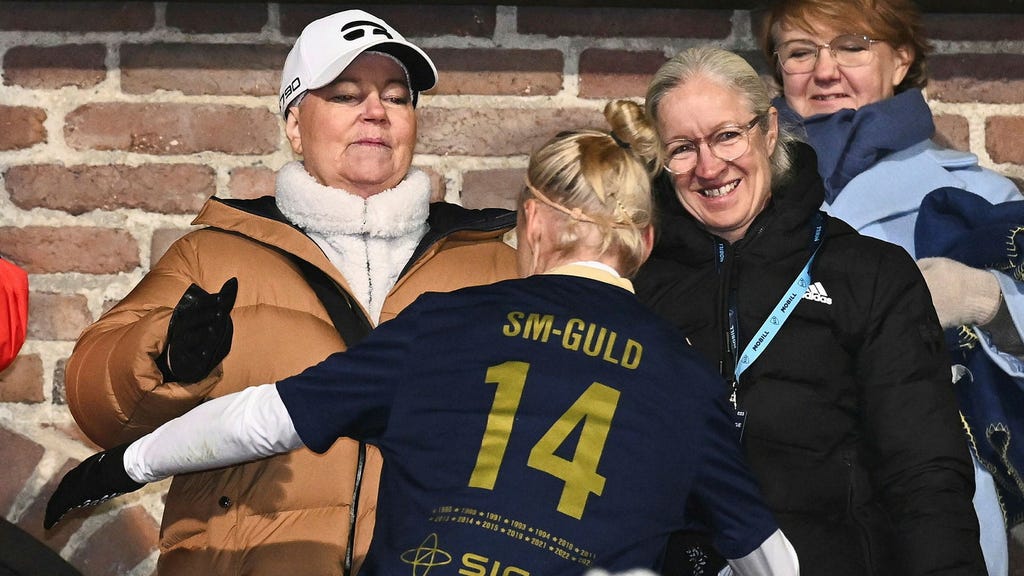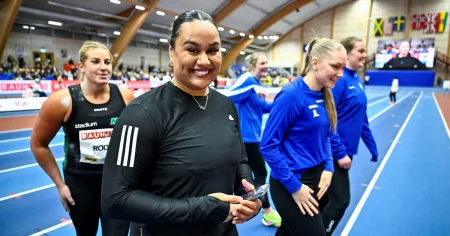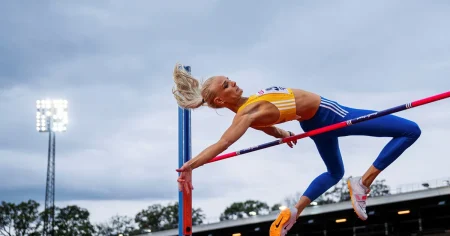Caroline Seger, a stalwart of Swedish football, recently concluded her illustrious career spanning over two decades with yet another Swedish championship title for FC Rosengård. While her international retirement was announced last year, a formal farewell ceremony, meticulously planned and postponed to accommodate a key figure in her career, finally took place on Tuesday. This tribute, held at Stockholm’s Tele2 Arena before the women’s Euro playoff return against Serbia, marked the culmination of a career that saw Seger earn a record-breaking 240 caps for the national team, a testament to her dedication and longevity in the sport.
The delay in Seger’s official send-off was driven by her deep respect and concern for Marika Domanski Lyfors, the national team manager, who is currently undergoing treatment for an inoperable brain tumor. Seger insisted that Domanski Lyfors, instrumental in launching her international career back in 2005, be present for this momentous occasion. The poignant reunion underscored the profound bond between the two, a relationship forged through years of shared triumphs and challenges within the Swedish national team. Seger’s heartfelt tribute to her mentor, acknowledging the difficult circumstances surrounding the celebration, was a testament to the deep personal connection they share.
Domanski Lyfors’ presence at the farewell was particularly significant given her role in shaping Seger’s career. Having brought Seger into the national fold nearly two decades ago, she has witnessed firsthand the midfielder’s growth and evolution into a leading figure in women’s football. This long-standing professional relationship evolved into a deep personal connection, evident in Seger’s emotional response to Domanski Lyfors’ video message at a recent awards ceremony. The message, praising Seger’s dedication, teamwork, and unwavering commitment to the sport, served as a touching tribute to her enduring legacy.
Seger’s career is punctuated by a remarkable collection of accolades, including seven Swedish championship titles, three World Cup bronze medals, two Olympic silver medals, and a Champions League victory. These achievements speak volumes about her consistent performance at the highest levels of the game. Beyond the trophies and individual honors, however, Seger’s impact transcends the field. Teammates and coaches alike praise her leadership qualities, her dedication to fostering a positive team environment, and her willingness to mentor younger players.
Tributes from former teammates and coaches paint a picture of Seger as not just a talented athlete, but also a unifying force within the teams she represented. Therese Sjögran, a former teammate and now football director at Manchester City, described Seger as the ”glue” that held both the national team and FC Rosengård together, setting a high standard for others to follow. Julia Zigiotti Olme, a current national team midfielder, highlighted Seger’s role as a mentor and inspiration, while Kosovare Asllani, another national team player, emphasized their enduring friendship and Seger’s exceptional character.
National team coach Peter Gerhardsson lauded Seger’s tactical acumen and her innate understanding of the game. He highlighted her ability to anticipate and communicate tactical nuances, effectively acting as an extension of the coaching staff on the field. This combination of skill, leadership, and tactical awareness cemented Seger’s status as a key figure within the Swedish national team, contributing significantly to their success over the years. Her influence extended beyond her own performance, shaping the development of other players and contributing to the overall team dynamic. Seger’s legacy, therefore, extends beyond individual achievements to encompass a profound impact on the broader landscape of Swedish women’s football.














